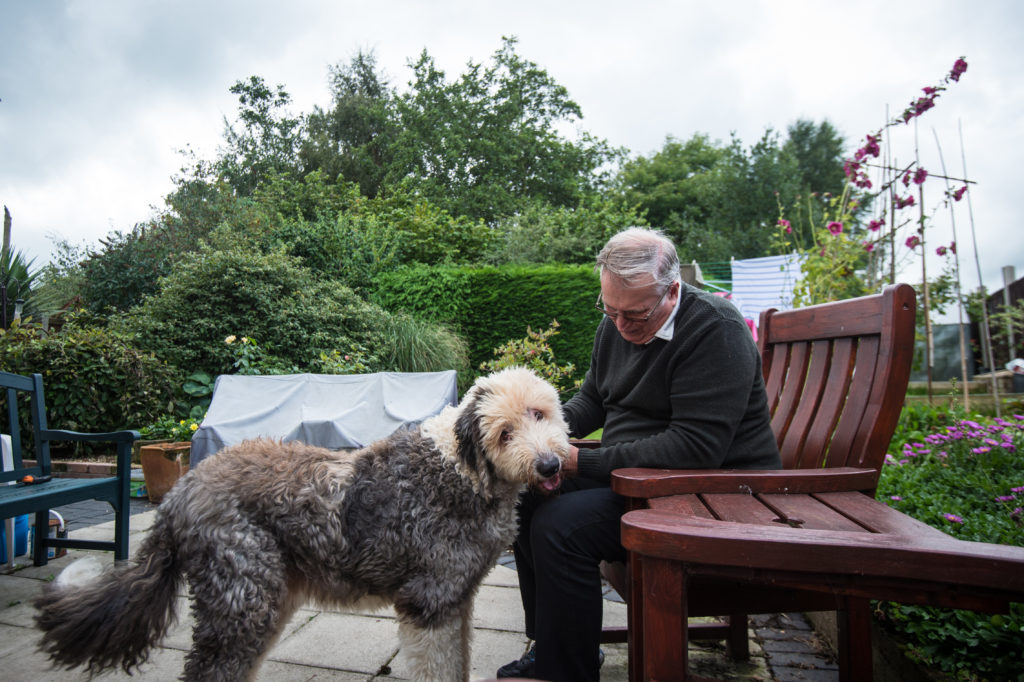Issue 3: Autumn/Winter 2017
Cancer, Grants to charities, Medical research
Media

Professor Colin Cooper, Chair of Cancer Genetics at University of East Anglia, is leading revolutionary research into the diagnosis of prostate cancer. The research has been made possible by £1 million of funding from the Masonic Charitable Foundation.
Professor Cooper and his team of researchers have successfully identified different forms of prostate cancer – classifications which did not previously exist – and can now begin to trial ground-breaking tests which will directly impact the lives of newly diagnosed men.
You will undoubtedly have heard of prostate cancer, but what exactly is it? What are the warning signs that you should look out for? We went back to basics with Professor Cooper to find out more.
What is prostate cancer?

Professor Colin Cooper
Prostate cancer is the most common cancer in men in the UK, with around 44,000 men diagnosed each year. The disease has some critical differences from other cancers – while over half of all men over the age of 60 will develop prostate cancer, only around 10 per cent of these cancers will ever become life threatening. The vast majority of diagnosed prostate cancers are harmless and the £1 million investment from the MCF will help to develop a test to distinguish between these harmless (non-aggressive) and aggressive prostate cancers, meaning treatment can be targeted to the men who actually need it.
What are the warning signs of prostate cancer?
The early symptoms of prostate cancer include:
If you experience these symptoms, it’s much more likely that you have something other than prostate cancer, but there is a small chance it could be prostate cancer. Genetics are an important factor – prostate cancer often runs in families and we know that black men have an increased risk while Asian men have a lower risk, although we don’t know why this is the case. Generally, we don’t know what environmental or dietary factors cause prostate cancer.
What are the risks of late diagnosis?
As with any cancer, the earlier you’re treated the better. Left undiagnosed and untreated, prostate cancer can spread and become more difficult to treat – you really need to catch it while it is still in the prostate.
How can men get tested?
If you have symptoms of prostate cancer, getting tested is simple. First, arrange an appointment with your GP, who will do something called a PSA blood test which tests for prostate protein in your blood. If you have an abnormally high level of PSA then you will go for further scans and biopsies to determine if you have prostate cancer.
It’s helpful to know that if you are over the age of 50 and see your GP for something completely different that requires a blood test, you have the right for your blood to be PSA screened as well, regardless of whether you are showing any symptoms.
Remember: testing for prostate cancer using PSA screening can detect harmless cancers as well as aggressive cancers – and that’s where our research can make a difference.
Are there any preventative steps that people can take to reduce their risk?
This is a good question and more research is required to answer it. What we do know is that avoiding dairy protein such as milk and consuming more processed tomatoes is good for your prostate. It’s also beneficial to eat a special type of broccoli called ‘beneforte broccoli’ as it has high levels of a chemical called sulforaphane which is believed to protect against prostate cancer. For those already diagnosed, exercise is also good for slowing progression of prostate cancer.
What treatments are available for men diagnosed with prostate cancer?
There have been many advances in treatment over the last decade such as hormone withdrawal therapy, surgery and radiotherapy. Importantly, once our research into aggressive and non-aggressive forms of prostate cancer has concluded and we have a secondary test for newly diagnosed men, doctors will be able to make a much better informed decision as to what treatment the patient needs. Fingers crossed this will be soon!
Les’ story

As well as tackling prostate cancer on a national scale through our medical research grants, we can also support individuals within the masonic community who are affected by the condition.
Les, a Freemason for 16 years, was completely unaware he was living with this life-threatening disease. It was only during a routine doctor’s appointment that he was offered a PSA blood test.
“The blood test came back showing that my PSA levels were too high. My doctor told me that I should have a scan to investigate further but that it would take a couple of weeks to get an appointment on the NHS. I didn’t want to wait, so I decided to pay for an MRI scan and a biopsy privately. This was when my cancer was fully diagnosed – but I was told I would face a year and a half wait for an operation.”
After confiding in his lodge Almoner about his diagnosis, the long NHS wait and the unaffordable cost of private care, Les found out about the MCF and successfully applied for funding to have his treatment privately. Just three months later he had the surgery he needed.
“As soon as the word cancer is mentioned, your whole world turns upside down, so who knows what would have happened if I had been forced to wait. I’m just so lucky I caught it early!”
If you are experiencing symptoms of prostate cancer, please make an appointment with your GP today and enquire about the cancer pathway.
Facing a lengthy wait for NHS cancer treatment?
Get in touch with us to see if we can support you.
0800 035 60 90
help@mcf.org.uk